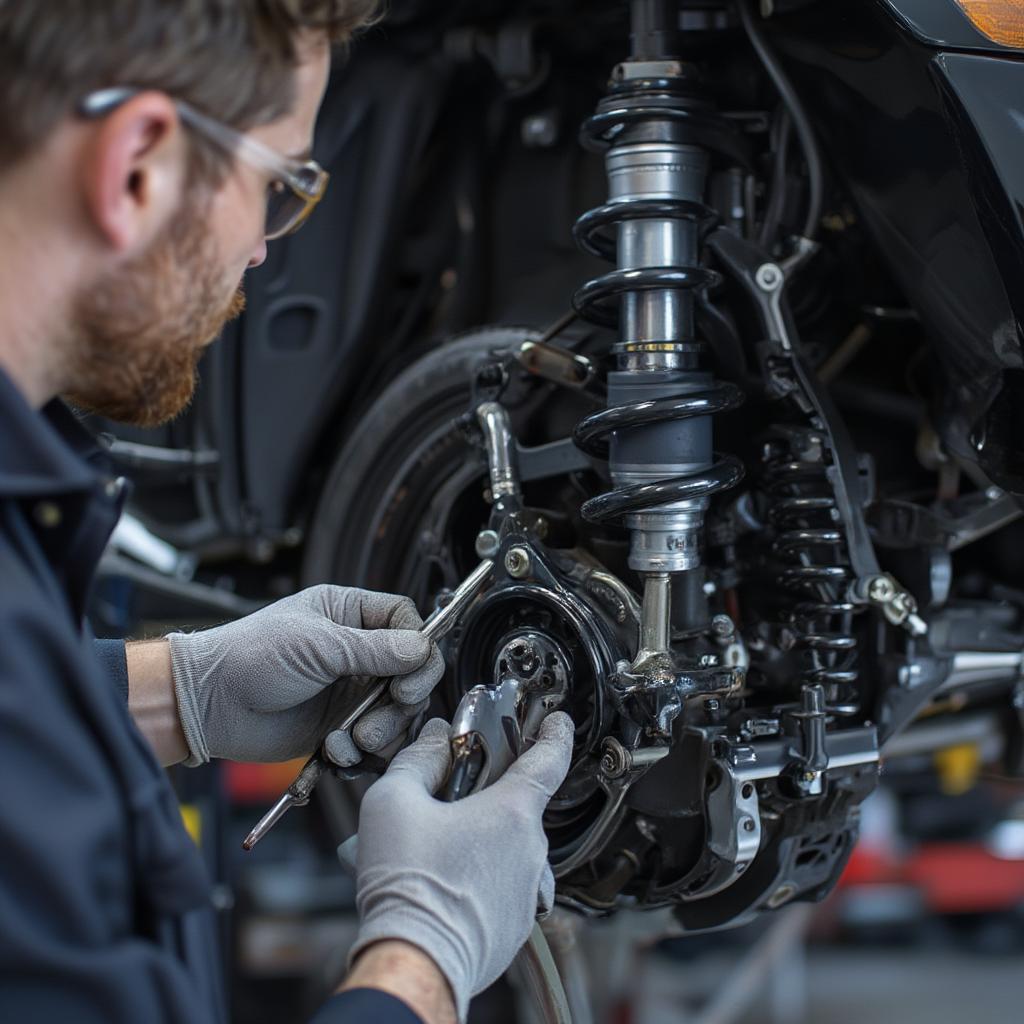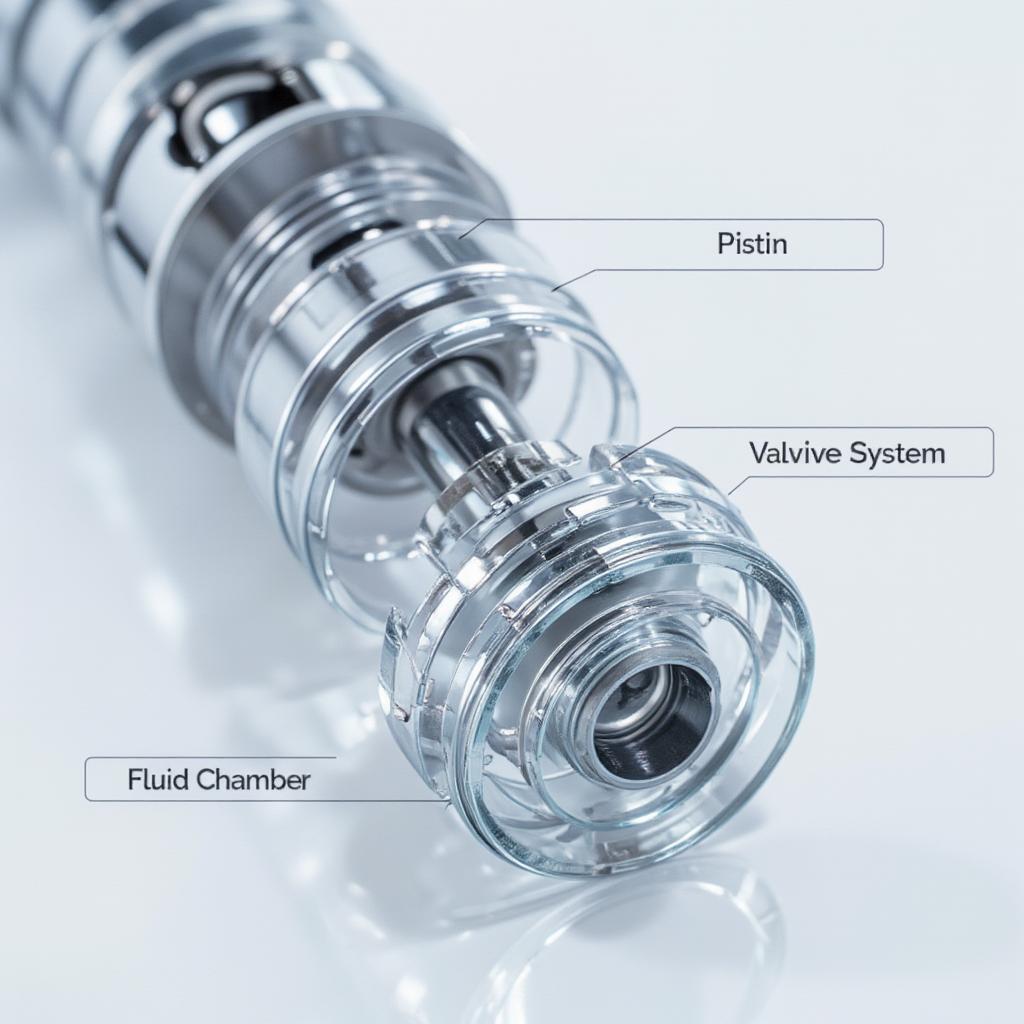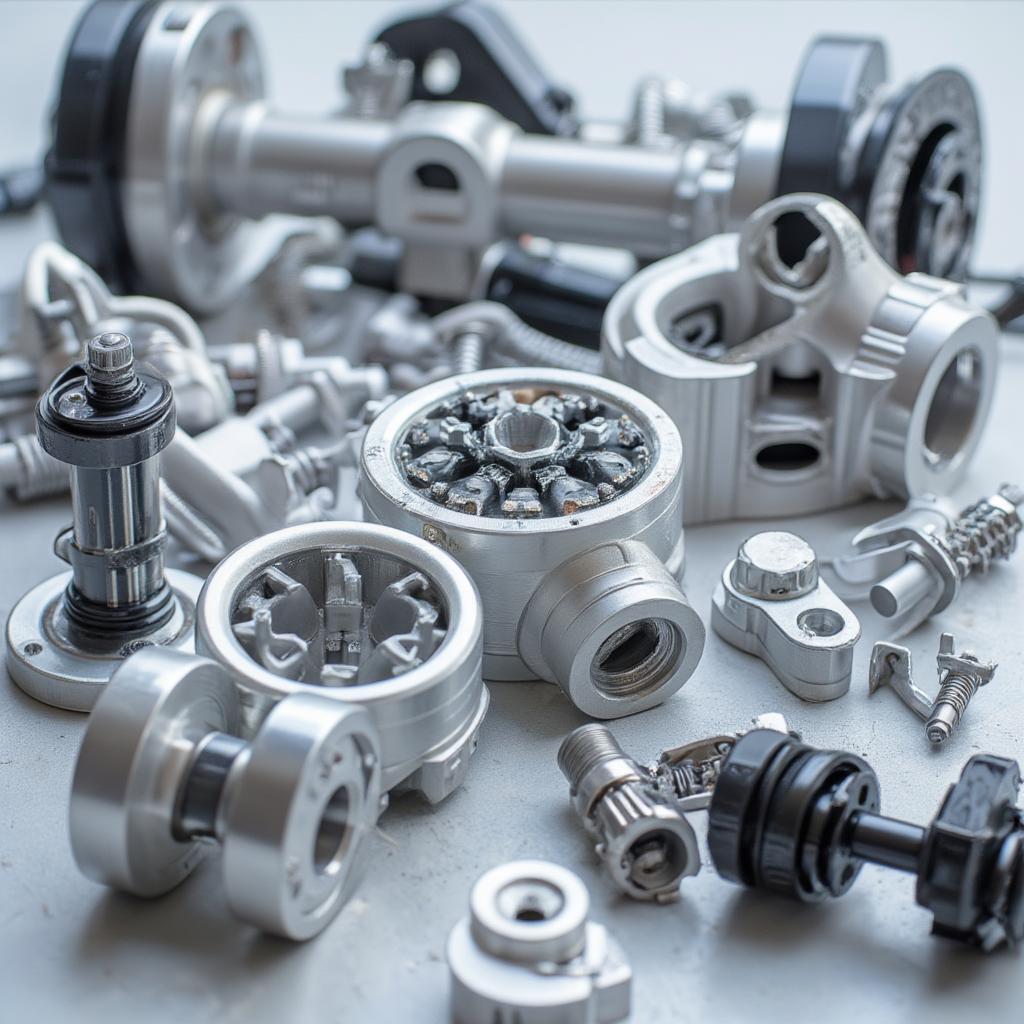Become a Certified Mechanic: Your Path to Automotive Expertise

A Certified Mechanic Course opens doors to a rewarding career in the automotive industry. This guide explores the benefits, requirements, and diverse career paths available to certified mechanics, focusing on the crucial role of suspension and shock absorption systems in modern vehicles.
The journey to becoming a certified mechanic involves dedication, skill development, and a passion for automobiles. Earning certification validates your expertise and enhances your credibility in a competitive field. A comprehensive certified mechanic course provides the foundational knowledge and hands-on experience necessary to diagnose, repair, and maintain vehicles, with a particular emphasis on advanced technologies like suspension and shock absorption systems. These systems are crucial for ensuring vehicle stability, handling, and passenger comfort.
Why Choose a Certified Mechanic Course?
The automotive industry is constantly evolving, with advancements in technology impacting vehicle design and maintenance. A certified mechanic course equips you with the skills to stay ahead of the curve, especially in areas like advanced suspension systems. It provides a structured learning environment covering everything from basic mechanics to specialized areas.
Benefits of Certification
- Enhanced Credibility: Certification demonstrates competence and professionalism to potential employers and customers.
- Career Advancement: Certified mechanics often have access to better job opportunities and higher earning potential.
- Specialized Knowledge: Courses offer in-depth training in specific areas, such as electronic systems, diagnostics, and, critically, suspension and shock absorption technologies.
- Job Security: The demand for skilled mechanics is consistently high, ensuring job stability.
- Personal Satisfaction: Mastering complex mechanical systems and contributing to the smooth operation of vehicles provides a sense of accomplishment.
Essential Skills Covered in a Certified Mechanic Course
A comprehensive program will cover a wide range of topics, including:
- Engine Repair and Maintenance: This includes understanding the intricacies of internal combustion engines, diagnosing problems, and performing necessary repairs. Modern engine management systems require a deep understanding of electronics and computer diagnostics.
- Brake Systems: Mastering the hydraulic and electronic components of braking systems is vital for ensuring vehicle safety.
- Electrical Systems: Modern vehicles rely heavily on complex electrical systems, requiring proficiency in diagnosing and troubleshooting electrical issues.
- Suspension and Steering: This crucial area focuses on the components that ensure vehicle stability, handling, and ride comfort. Understanding advanced suspension technologies, like adaptive damping and air suspension, is becoming increasingly important.
Mechanic Examining Car Suspension System
- Transmission and Drivetrain: Learning how power is transferred from the engine to the wheels is fundamental to vehicle operation.
- Heating and Air Conditioning: Diagnosing and repairing HVAC systems ensures passenger comfort.
- Diagnostics and Troubleshooting: Using specialized tools and software to identify and resolve complex vehicle issues is a key skill for modern mechanics.
Career Paths for Certified Mechanics
A certified mechanic qualification opens doors to a variety of exciting career options:
- Automotive Technician: Performing routine maintenance, diagnosing problems, and conducting repairs.
- Specialized Technician: Focusing on specific areas like engine performance, brakes, or advanced suspension systems. Welcome Shock Naue excels in providing advanced solutions in this field.
- Diagnostic Technician: Using sophisticated equipment to identify complex issues and develop repair strategies. auto mechanic majors can lead to this career path.
- Service Advisor: Interacting with customers, explaining repairs, and providing estimates.
- Shop Foreman: Supervising a team of technicians and managing workflow in a repair shop. You can find relevant training through car mechanic training courses near me.
- Independent Shop Owner: Starting and running your own automotive repair business.
Finding the Right Certified Mechanic Course
Choosing the right program is crucial for your success. Consider factors like accreditation, curriculum, instructors’ experience, and facilities. Online resources like car diagnostic courses online can supplement traditional training.
Key Considerations
- Accreditation: Ensure the program is recognized by relevant industry organizations.
- Curriculum: Verify that the coursework covers the latest technologies and industry standards, including advanced diagnostics and suspension systems.
- Hands-on Experience: Look for programs that offer extensive practical training in a well-equipped shop.
- Instructor Qualifications: Experienced instructors with industry certifications can provide valuable insights and guidance.
The Future of Automotive Technology and the Certified Mechanic
The automotive industry is undergoing a rapid transformation with the emergence of electric vehicles (EVs), autonomous driving technologies, and advanced driver-assistance systems (ADAS). Certified mechanics will play a crucial role in maintaining and repairing these increasingly complex vehicles. auto service tech jobs will evolve to meet these new demands.
Adapting to Change
- EV Specialization: Understanding the unique components and systems of electric vehicles will be essential. This includes battery technology, electric motors, and charging systems.
- Software Proficiency: As vehicles become more software-dependent, diagnostic and repair skills will require proficiency in computer programming and software analysis. Opportunities can be found through automotive mechanic trade schools near me.
- Data Analysis: The ability to analyze vehicle data to predict potential problems and optimize performance will be crucial.
Conclusion
A certified mechanic course is a solid investment in a rewarding career. By mastering fundamental skills and staying abreast of emerging technologies, certified mechanics can thrive in a dynamic and ever-evolving industry. The increasing complexity of modern vehicles, particularly in areas like suspension and shock absorption, underscores the importance of continuous learning and professional development.
Expert Insight from Robert Johnson, Senior Automotive Engineer at Welcome Shock Naue: “The future of automotive technology relies heavily on skilled technicians who understand advanced systems. Suspension and shock absorption technologies are no longer just about comfort; they are integral to vehicle safety and performance.”
Expert Insight from Maria Rodriguez, Lead Instructor at the National Automotive Technician Institute: “A certified mechanic course provides the foundation for a successful career. Continuous learning and a passion for the industry are key to staying ahead.” 
FAQ
-
What are the requirements for a certified mechanic course? Requirements vary, but typically include a high school diploma or equivalent and a mechanical aptitude.
-
How long does it take to become a certified mechanic? Completion time varies depending on the program, but typically ranges from several months to two years.
-
What is the job outlook for certified mechanics? The demand for skilled mechanics is expected to remain strong.
-
What is the average salary for a certified mechanic? Salaries vary based on experience, location, and specialization.
-
What types of certifications are available for mechanics? Various certifications are available, including ASE (Automotive Service Excellence) certification.
-
How can I find a reputable certified mechanic course near me? Research accredited schools and programs in your area or online.
-
What are the continuing education requirements for certified mechanics? Staying updated with the latest technologies and industry standards through continuing education is crucial.
-
Is financial aid available for certified mechanic courses? Many schools offer financial aid options.
-
What are the advancement opportunities for certified mechanics? Certified mechanics can advance to specialized roles, supervisory positions, or even start their own businesses.




